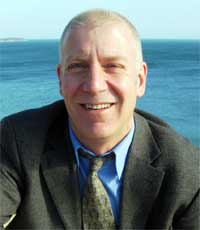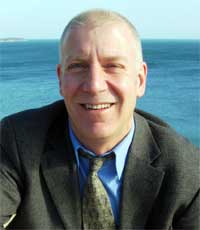 KINGSTON, R.I. — March 7, 2012 – Slowly, but surely, the shades are being drawn on Americans’ window to the world as news organizations scale back their coverage of international affairs, says William J. Kole, the Associated Press bureau chief for New England.
KINGSTON, R.I. — March 7, 2012 – Slowly, but surely, the shades are being drawn on Americans’ window to the world as news organizations scale back their coverage of international affairs, says William J. Kole, the Associated Press bureau chief for New England.
Kole, who spent much of his journalism career as a foreign correspondent, is this year’s speaker at the University of Rhode Island’s 2012 Christiane Amanpour Lecture. Kole will deliver a speech titled “America’s Blasé Approach to Global News Coverage and Why it’s Wrong” on March 21 at 7 p.m. in Swan Hall, Doody Auditorium, 60 Upper College Road, Kingston. The lecture is free and open to the public.
“I think we’ve cut back our commitment to international coverage,” Kole said. “The ranks of foreign correspondents have been greatly thinned because it’s a great financial commitment for news organizations. Our window on that world is closing.”
“There’s a great history at URI with the Amanpour Lecture bringing in foreign correspondents from The New York Times and elsewhere to throw open that window.”
Kole, 51, said that as the U.S. engages in conflicts on several fronts overseas and the world markets become ever more intertwined, news coverage of issues on a global scale are more important than ever.
Yet, simultaneously, even the largest news organizations in the nation prefer to rely on the voice of the Associated Press, or flying in reporters when something happens, rather than having them stationed in key spots around the world to develop a more comprehensive view of global affairs.
“I think it’s hugely important” to have more voices reporting on world events, Kole said. “The Associated Press is a credible news organization with a commitment to robust international news coverage, but there needs to be more people reporting. It’s tragic that many large newspapers don’t have their own foreign correspondents.
“News organizations are flying people into situations to perform fireman duty, but that only goes as far as it goes,” he continued. “Those reporters don’t know the texture of that place, and we’ve lost that to a great degree.”
Kole, a Massachusetts native who is now based in Boston, spent nine years as the AP bureau chief in Vienna covering central and eastern Europe. He led the AP’s coverage of ethnic conflict in Macedonia; the arrest and death of former Yugoslav strongman Slobodan Milosevic; the capture of Bosnian Serb war crimes fugitive Radovan Karadzic; Kosovo’s declaration of independence; and the trial of Austria’s Josef Fritzl, who imprisoned his daughter for 24 years and fathered her seven children.
Kole also helped cover major breaking stories outside his region, including the car crash that killed Princess Diana, the death of Pope John Paul II, the London subway terrorist attacks and violent street protests in Iran.
He joined the AP in 1988 in Detroit and moved to Lansing, Mich., as a statehouse reporter in 1992. The following year, he transferred to the international desk in New York and, in 1995, he was posted to Paris. Kole previously served as bureau chief in Hartford, Conn., from 2000-01, and in Amsterdam from 1997-2000. This spring he is a visiting professor of journalism at Wheaton College in Norton, Mass.
Kole studied journalism at Boston University and worked for The Sun Chronicle in Attleboro, Mass., before joining the AP. He and his wife, Terry DeYonker Kole, a former illustrator for AP Graphics and The Detroit News, have two grown children.
The Christiane Amanpour Lecture is named for the 1983 URI alumna and 1995 honorary degree recipient who is the global affairs anchor for ABC News’ This Week. Amanpour is also the chief international correspondent for CNN International.
The annual speaker series is designed to help the University bring well-respected professional journalists to campus and it is coordinated by URI’s Journalism Department.

